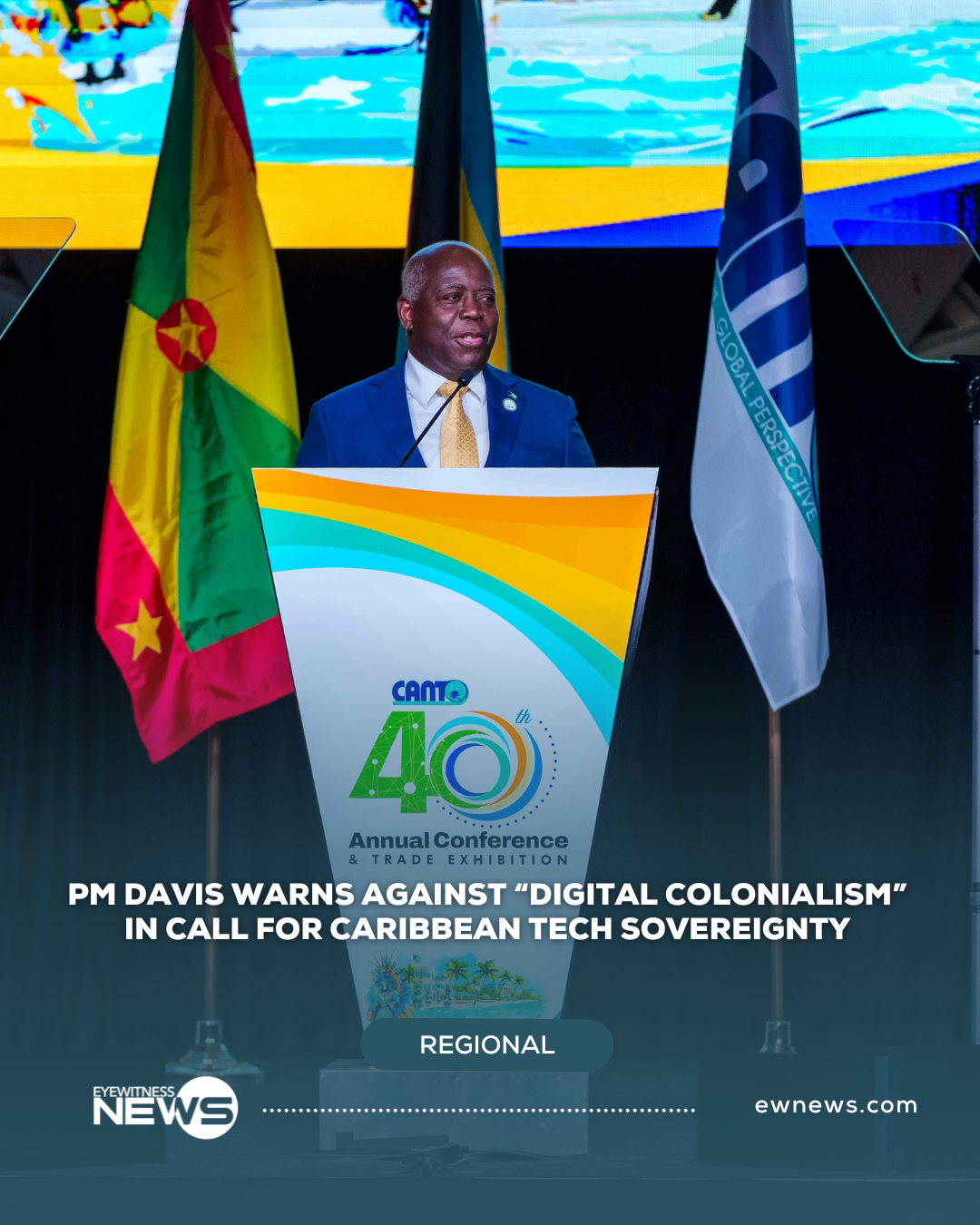NASSAU, BAHAMAS – Prime Minister Philip Davis has issued a stark warning to regional leaders and industry executives, cautioning that the Caribbean risks sliding into a new era of “digital colonialism” unless it asserts technological sovereignty and prioritizes people over platforms in its digital transformation agenda.
Addressing more than 700 delegates from 52 countries at the opening of the Caribbean Association of National Telecommunications Organizations (CANTO) 40th Annual Conference and Trade Exhibition at the Grand Hyatt Baha Mar, Davis framed the digital revolution as both an opportunity and a potential threat to regional autonomy.
framed the digital revolution as both an opportunity and a potential threat to regional autonomy.
“If we are not careful, we may unwittingly exchange one form of colonialism for another, this time in the form of digital dependence. We must ensure that the digital era empowers us rather than enslaves us,” Davis told delegates.
In a speech punctuated by calls for regional unity and principled leadership, Davis emphasized that digital transformation cannot simply be measured by network speeds, technological upgrades, or flashy platforms. Instead, he insisted, it must serve as a vehicle for expanding access to justice, education, economic participation, and social equity.
“Digital transformation must be about more than systems and speed. It must improve lives, create opportunity, and expand access to justice, education, and entrepreneurship,” he said.
His remarks were delivered under the conference theme “Towards a Unified and Sustainable Caribbean Gigabit Society,” positioned The Bahamas not merely as host but as a regional standard-bearer for human-centric digital policy.
Drawing a sharp distinction between technology as a tool and as a potential instrument of foreign control, Davis argued that Caribbean nations must craft indigenous digital frameworks tailored to their unique social and economic realities.
“What we build must be resilient, yes. But it must also be inclusive. A truly digital society leaves no one behind, not the child in the Family Islands, not the elderly, not the small business owner without formal banking access,” he said.
He cited his administration’s recent initiatives to expand digital services across The Bahamas, including the rollout of free Wi-Fi zones in the Family Islands, digitization of critical government services such as passport renewals and business licensing, and the implementation of technology training programs for youth and entrepreneurs under the “MyGateway” and “TechEdge” initiatives.
The Prime Minister invoked The Bahamas’ history of regional leadership—recalling that the nation was the first in the Caribbean visited by Nelson Mandela after his release from prison—as a moral imperative to act decisively in the digital domain.
“Just as we stood on the right side of history then, we must do so again, this time in the digital fight for equity, resilience, and inclusion,” he said.
Underscoring the geopolitical stakes of technological dependency, Davis insisted that data, systems, and digital infrastructure must remain under Caribbean control to safeguard national and regional interests.
“The tools may be global, but the solutions must be national. We must use this digital tide to lift our people—all our people—and ensure that our data, our systems, and our future remain in Caribbean hands,” he declared.
He also urged CARICOM member states to deepen collaboration on critical issues including data protection, cybersecurity, and regulatory harmonization, warning that small island nations share vulnerabilities that require a unified response.
“This is not just about access to technology. It is about access to dignity, to opportunity, and to global competitiveness,” Davis concluded.


















